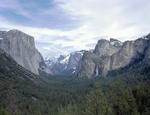In March of 2012, Ranger Frank Quinto saw a man, later identified as Robert Carstens, 57, of Dune Acres, Indidana, riding a personal watercraft (PWC) along the Lake Michigan shoreline inside the boundary of the park. Knowing he was spotted and that PWCs are prohibited within the park, Carstens anchored near the beach and left the area.
As darkness fell that day, he returned to the public beach near the town of Dune Acres with an all-terrain utility vehicle and loaded the watercraft onto a trailer. When contacted by Quinto, Carstens said that he received permission to operate the PWC and drive on the beach from the chief ranger and superintendent, an assertion that was refuted when the chief ranger arrived on scene a minute later. Carstens received violation notices for the operation of the PWC as well as launching/recovering a watercraft in an unauthorized location and driving off of the road.
In June of 2012, Carstens appeared in federal district court and pled not guilty to all charges. Carstens, a longstanding proponent of PWC use in the lakeshore, entered into a series of delaying tactics to prolong the case until July of 2013, when a bench trial was held.
During that trial, Carstens’ attorney moved for dismissal of the charges based upon his opinion that the National Park Service does not have jurisdiction on the beaches within the park. In answering the motion for dismissal, the U.S. Attorney’s Office responded with citations of case law going back for nearly 75 years that supported the United States’ authority to regulate the use of lands and waters within the boundaries of national parks.
In January of 2014, a federal judge found that the National Park Service does have jurisdiction over the beach within the boundary of the park and found Carstens guilty on all three counts. He was sentenced to fines totaling $275.
This case serves as an important event in the history of the park. Since the establishment of the national lakeshore, local resident have long argued that the park does not have legal jurisdiction along Lake Michigan and have regularly threatened civil suits to assert private property rights over public lands. This was the first case that actually tested that opinion and confirmed that the NPS has the authority to regulate activities taking place within park boundaries along Lake Michigan.
Re: Court Confirms Park Jurisdiction In PWC Use Case
All posts are those of the individual authors and the owner
of this site does not endorse them. Content should be considered opinion
and not fact until verified independently.
Sorry, only registered users may post in this forum.


